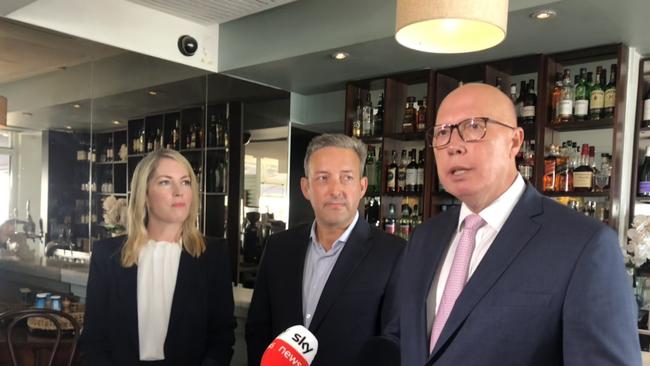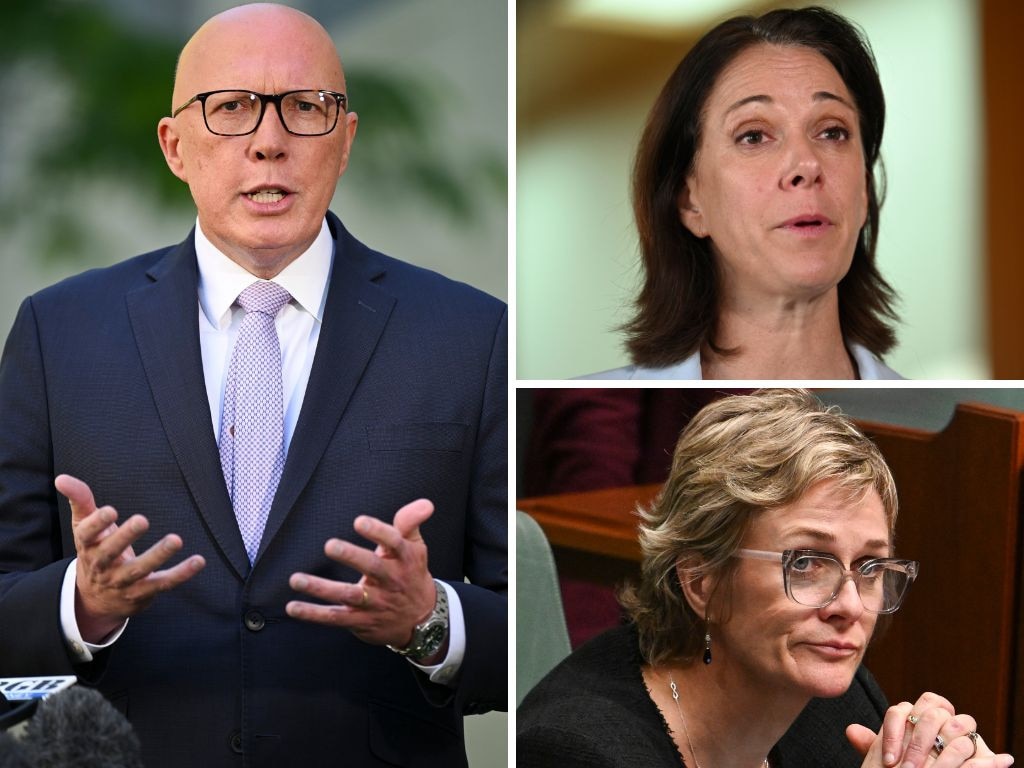
Campaigning on Sydney’s Northern Beaches on Wednesday, Peter Dutton delivered a blunt message: namely, “a vote for a teal candidate is a vote for Anthony Albanese”. The Opposition Leader added: “If we (the Coalition) win these seats back, we win government.”
Dutton maintained that the teals “are not interested in supporting the Liberal Party, they’re not disaffected Liberals, they are Greens and they’re Labor supporters”.
A couple of days earlier, on December 2, Liberal Party frontbencher Paul Fletcher addressed the Sydney Institute on his chosen topic: Why majority government is in the national interest and the teals are not.
Fletcher described the teals as a “giant green-left con job perpetrated on the Australian electorate by Melbourne billionaire’s son Simon Holmes a Court and a group of other wealthy people”.
But Fletcher also had a positive message. He maintained that “majority government is a good thing for Australia and the teals constitute the most serious threat to majority government in 80 years”. His position is that “unless a prime minister has a clear majority in the House of Representatives, it is virtually impossible to achieve substantive reform”.
The point being that the last substantial economic reform in Australia occurred when Labor’s “Bob Hawke and Paul Keating lowered tariffs and floated the dollar”. And, later, when the Coalition’s “John Howard and Peter Costello reformed our tax system and introduced the GST”. Both Hawke and Howard headed majority governments. More reform is needed to overcome current economic problems.
The task for Dutton is to win all or at least some of the seats the Liberals lost to the teals at the May 2022 election. Mackellar (Sophie Scamps) and Wentworth (Allegra Spender) in Sydney, Goldstein (Zoe Daniel) and Kooyong (Monique Ryan) in Melbourne and Curtin (Kate Chaney) in Perth.
Kylea Tink won North Sydney for the teals in 2022 but this seat has been abolished in a redistribution. Zali Steggall defeated Tony Abbott in Warringah three years earlier. The teals have a high profile, partly because they are liked by many journalists who share their left-of-centre or “progressive” views.
However, most teals do not have what might be described as safe seats.
ABC election analyst Antony Green has assessed their margins to take account of the recent distribution. According to this estimate, Steggall has a margin of a relatively high 9.4 per cent and Spender 6.8 per cent. The rest have narrower margins. To wit, Scamps and Daniel 3.3 per cent each, Ryan 2.2 per cent and Chaney 1.3 per cent.
In other words, only Steggall and Spender have relatively safe margins.
It should be remembered that the teals won their seats in 2022 on Labor Party and Greens preferences. Their primary votes were as follows: Steggall (44.8 per cent), Ryan (40.3 per cent), Scamps (38.1 per cent), Spender (35.8 per cent), Daniel (34.5 per cent), and Chaney (29.5 per cent). Tink won in North Sydney with a primary vote of a mere 25.2 per cent.
Following his speech, Fletcher received a political battering on the letters pages of Nine newspapers. On the day after The Sydney Morning Herald reported part of his talk, 13 out of 13 letters to the editor were critical of Fletcher. In The Age in Melbourne, it was four out of four.
Many correspondents maintained that in 2022 Fletcher was threatened by a teal in his seat of Bradfield. So he was. But Fletcher won 45.1 per cent of the primary vote to his community independent rival who scored a primary vote of 20.9 per cent.
This underlines the point that the teal and other community independents in 2022 won because of the preferences of Labor-voting social democrats and/or green-left ideologues.
This gives vent to Dutton’s argument that a vote for the teals is a vote for the return of the Albanese Labor government.
It remains to be seen now whether Albanese or Dutton will lead a majority or minority government after the election.
Unless there is a minority government, the teals and other independents will have no real influence on the new government, unlike the Greens and independents in the Senate.
Labor has had a majority in the House of Representatives since the 2022 election and the teals have had scant political influence despite their extensive media coverage.
Last Thursday, ABC News online carried a story headed “Teal MPs push for changes to small business definition as election looms”. And so they did. But Labor has no intention of allowing such legislation to pass since it is not dependent on this group of eight – seven teals plus Helen Haines, the MP for Indi in central Victoria. A couple of weeks earlier, Daniel got a run on the ABC proclaiming the value of her private members bill. Maybe it is valuable. But it is most unlikely to be enacted.
Come election time, the taxpayer-funded public broadcaster effectively runs a clock on various candidates to ensure they receive equal time according to their level of support while the campaign is under way. It remains to be seen how the ABC will treat the teals.
In response to a question at his recent speech in Sydney, Fletcher said: “The ABC has a very long track record, regrettably, of giving an amount of attention to historically the Greens and now they’ve done the same thing with the teals which is well out of proportion to the number of Australians who support them.”
He added that “ABC journalists seem very excited about the teals – Zoe Daniel herself is a former ABC journalist”.
Last Tuesday, Spender posted a message on X to the effect that, unlike Fletcher, when she spoke at The Sydney Institute recently: “I set out my program for economic and tax reform.” Quite so. But it is unlikely to be embraced by either Labor or the Coalition.
Fletcher, on the other hand, made a case for the continuation of majority government. After all, after the next election either Albanese or Dutton will be prime minister.
Gerard Henderson is executive director of The Sydney Institute.





It was the week of the Liberal Party fightback against the teals, who like to present themselves as community independents.